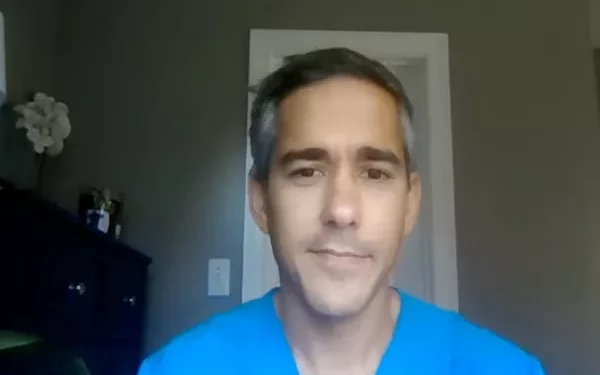On November 20, 2024, the U.S. Food and Drug Administration (FDA) granted approval for bimekizumab (Bimzelx; UCB Pharma) as a treatment for moderate to severe hidradenitis suppurativa (HS). This approval follows data from the BE HEARD 1 and 2 clinical trials, in which Dr. Chris Sayed, a dermatologist and professor at the University of North Carolina, served as an investigator. These trials were pivotal in demonstrating the drug’s effectiveness and safety for HS patients.
Bimekizumab, a humanized monoclonal antibody targeting both IL-17A and IL-17F, has already received multiple indications for other inflammatory conditions, including psoriatic arthritis and moderate to severe plaque psoriasis. With this new approval, bimekizumab becomes the fifth such approval since its initial launch in October 2023.
Dr. Sayed discussed the unique benefits of bimekizumab for HS patients and shared insights into an ongoing open-label extension study designed to assess the long-term efficacy of the drug.
Targeting Dual IL-17 Pathways
Unlike other existing treatments, bimekizumab is designed to inhibit two forms of interleukin-17 (IL-17A and IL-17F), a cytokine critical in driving inflammatory skin diseases like psoriasis and HS. While most IL-17 inhibitors focus solely on IL-17A, blocking both IL-17A and IL-17F provides a more comprehensive approach, leading to greater reductions in inflammation. Dr. Sayed explained that while IL-17F alone may not be as potent as IL-17A in causing inflammation, its abundance can still contribute to disease progression. By targeting both types of IL-17, bimekizumab offers a more complete blockade, which has been shown to result in enhanced clinical outcomes for patients.
Overview of BE HEARD Trials
The BE HEARD 1 (NCT04242446) and BE HEARD 2 (NCT04242498) trials were designed to evaluate the safety and efficacy of bimekizumab in patients with HS. Both trials used a rigorous design to assess treatment response, setting a high bar for efficacy with the goal of a 75% reduction in inflammatory lesions—far exceeding the typical 50% improvement benchmark used in similar studies.
Results from both trials showed significant efficacy, with many participants meeting the stringent 75% reduction target. Importantly, the trials demonstrated that the drug’s effects were not only immediate but also sustained over time. Patients experienced continued improvements in symptoms even after one to two years, reinforcing bimekizumab’s potential as a long-term treatment for HS.
Dr. Sayed emphasized the significance of these findings, noting that many patients in the trials reported dramatic reductions in disease severity, some even feeling near-clear of the condition after prolonged treatment.
Long-Term Efficacy: Open-Label Extension Study
The ongoing open-label extension study provides further insight into bimekizumab’s long-term efficacy. In this phase, patients who completed the initial trial were given the option to continue treatment, allowing researchers to track how sustained the benefits of bimekizumab are over time.
Initial results from the extension study, including data up to 96 weeks, are promising. Patients who had shown a 50% to 75% improvement early on experienced further progress, with a notable number achieving up to 90% or 100% improvement. Dr. Sayed highlighted that approximately 40% of patients in the study reached a “high score 100,” meaning they had no abscesses or inflammatory nodules, a significant achievement for many who previously felt such outcomes were unattainable.
These results point to the potential for deep, long-lasting responses with bimekizumab, which could offer hope for patients with severe HS who have struggled with treatment resistance.
With FDA approval now in place, bimekizumab offers a new, effective treatment option for individuals suffering from moderate to severe hidradenitis suppurativa. The data from the BE HEARD trials and the ongoing open-label extension study underscore the drug’s ability to provide not only significant symptom reduction but also sustained, long-term improvement, filling a critical gap in the management of this challenging condition.



























